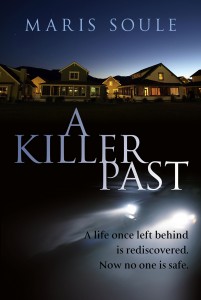WPA-“From Fact to Fiction” By Maris Soule
Our Friday afternoon speaker was Lisa Gardner, a #1 New York Times bestselling suspense novelist. Lisa spoke on: “From Fact to Fiction: How to Turn Chilling Research into a Thrilling Novel.”
Lisa Gardner
I’ve read some of Lisa’s novels and she truly does write a chilling story.
Much of what she said wasn’t new, but it’s always good to hear this information again. She started by telling us the information we need in order to write a mystery/suspense/thriller can be found in (1) secondary sources such as text books, articles (especially about true crime), and the Internet; from (2) interviewing experts such as lawyers, police, FBI, doctors, etc.; and (3) hands-on research such as firearms training, self-defense, and attending programs such as Writers Police Academy. She said a writer should utilize family and friends. If they don’t have the information you need, maybe they know someone who does.
A writer needs to make new friends. You need to cold call the people who can provide the information. (I’ve done that many times. I’m always nervous, and I’m always amazed by how willing these professional people are to answer my questions.) The main thing Lisa stressed (and I agree) is you need to be polite and professional. And you need to emphasize it is fiction. (I found the deputy I talked to got very anxious when I asked about a boat exploding on Lake Michigan. I had to quickly reassure him this was fiction.)
If the expert you call doesn’t have the answers you need, ask him or her to recommend someone who might. And don’t be afraid to go through official channels. Media officers are your friend. Schedule a time to talk, and do your homework before you make the call so you know what questions to ask. Also, it’s always good to ask if you can contact them later or talk to someone else for additional information, if you find it necessary. Finally, follow up your call with a thank you note. (Sometimes also sending a thank you to upper-ups is good.)
Usually, Lisa said, research will lead you to the need for more information. It opens new possibilities for your story.
While interviewing the expert, it’s good to ask what their funniest case was, their scariest case, and/or their favorite case. Or, what was their biggest surprise on the job? The best part of the job? The worst part? She also said she asks what the expert has found wrong in books. That way she doesn’t repeat that mistake.
If this expert is a friend or the conversation is going well, you might ask: “How do you commit the perfect crime?” I had an opportunity like this years ago when I asked a pilot friend how to hijack a small plane. He told me the exact steps I would have to take.
One thing Lisa stressed is in a good thriller everyone needs to be smart. It needs to be a battle of wits. She also warned not to overlook the mundane details, such as the sense of smell, touch, and sound, or the adrenaline rush, the nerves, and the rapid thoughts running through one’s mind.
Depending on the type of story you’re writing or your personality as a writer, decide what details are the right ones to use in a story. The stress might be on science versus psychology. Or it might be a police procedural. Or a domestic suspense. You, the writer must decide what details are the right details. The knowledge you acquire is like an iceberg. What you use in a story may just be the tip, but the more you know to back up that knowledge, the more convincing that detail will seem.
And finally, she reminded us that if it’s a dramatic scene, you want to write in detail to develop the tension, but if it’s simply a scene where you’re providing information, get through that fast.
John Gilstrap and Lisa Gardner.
If you want more information about Lisa Gardner, check out her website: www.lisagardner.com
